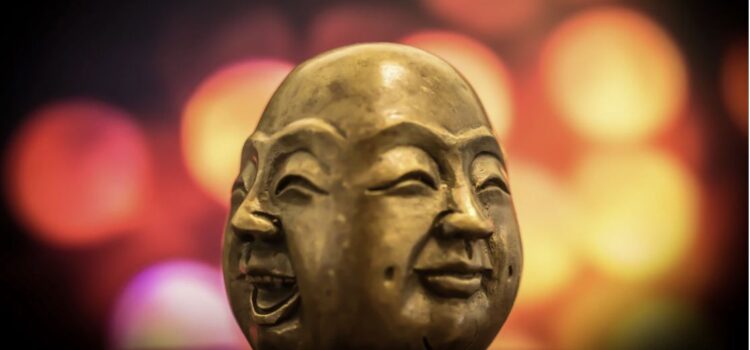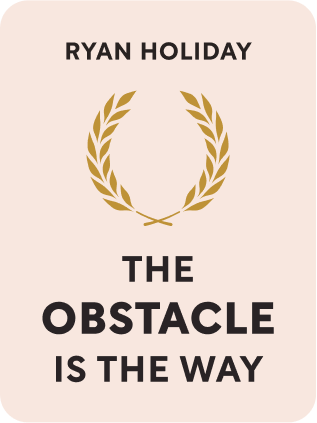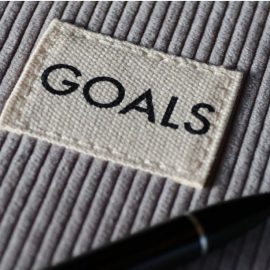

This article is an excerpt from the Shortform book guide to "The Obstacle Is The Way" by Ryan Holiday. Shortform has the world's best summaries and analyses of books you should be reading.
Like this article? Sign up for a free trial here .
What is the Stoic view of emotions? How do Stoics remain unperturbed in the face of difficult emotions?
Stoic philosophers emphasize the importance of emotional regulation—intentionally deciding which emotions you allow to influence your behavior. In his book The Obstacle Is the Way, Ryan Holiday argues that emotional stoicism is a practical skill that everyone can (and must) learn. To this end, he offers several strategies for keeping unhelpful emotions at bay.
Let’s investigate each of these strategies in turn.
Introduction to Emotional Stoicism
In Stoicism, emotional control is considered one of the highest virtues you can cultivate. It’s a simple fact of life: You will frequently feel emotions (such as fear and anger) that work against you and push you away from your goals. If you don’t exert control over these unhelpful emotions, you’ll sabotage yourself before you’ve even begun to take action.
This doesn’t mean you aren’t allowed to have feelings. It’s likely impossible to suppress every negative feeling you have. Give yourself time to feel whatever emotions naturally arise. However, also work toward an emotional state that motivates you to act. It’s okay to feel any emotion. It’s not okay to let your emotions prevent you from doing what’s right. For example, if your coworker angers and embarrasses you by deliberately pointing out your mistake in front of the boss, give yourself a minute to calm down, then continue to work as best you can.
Additionally, Holiday emphasizes that your emotional state is completely under your control. It can’t be weakened or stopped by any external forces. This makes emotional regulation one of the most powerful tools you have at your disposal.
| Eupatheiai: The Only Good Emotions Holiday’s stance on emotion regulation is less extreme than the original Stoic teachings. Holiday sees negative feelings as more or less an inevitable part of life, defining “The Discipline of Will” as the ability to act despite your unhelpful emotions. On the other hand, traditional Stoics believed that by exerting your rationality, you can learn to completely cleanse yourself of harmful emotions. They saw all negative emotions as a failure of rationality and argued that by exercising logic, you would realize that you had nothing to be upset about. Like Holiday, they emphasized that everyone has the power—and obligation—to control their emotional state. In fact, traditional Stoics believed virtuous people should only feel three emotions: the three eupatheiai, or “good states.” These were chara, boulêsis, and eulabeia, commonly translated as joy, wish, and caution. “Joy” is the rational judgment about something good in the present, “wish” is the rational judgment about something good in the future, and “caution” is the rational judgment about something bad in the future. The Stoics denied the idea that anything could be rationally judged as bad in the present. Since they believed in logos, a rational power bringing order to the universe, they maintained that everything in the present was good, unfolding according to its fate. |
Here are some tactics you can use to conquer the negative emotions keeping you from living a fulfilling, virtuous life:
Strategy #1: Use Logic to Defuse Your Unhelpful Emotions
Holiday claims that by slowing down and analyzing your situation logically, you can soothe unhelpful, impulsive emotions like panic or anger. Whenever you feel yourself being tugged around by your emotions, stop and interview yourself to discover why you feel the way you do. Ask yourself questions, then answer them logically. You can overcome negative emotions by clarifying what irrational beliefs are making you feel this way and replacing them with a logical counterargument.
(Shortform note: In Emotional Intelligence, Daniel Goleman offers a caveat to this advice, noting that thinking over an emotion for too long may extend and intensify your negative feelings. Mental exercises such as Holiday’s self-interview may make you sadder by forcing you to dwell on whatever is making you sad. Instead, Goleman recommends intentionally planning pleasant distractions such as comforting TV or exercise to combat sadness.)
Strategy #2: Redirect Your Emotions Into Helpful Contexts
When you’re unable to fully rid yourself of negative emotions, Holiday recommends you transform them into a form that serves you. In particular, when unfair circumstances or pointless constraints frustrate you, Holiday suggests you use that anger as fuel instead of allowing it to make you reckless. Use your calm, rational mind to decide where to commit your energy, then allow yourself to act wildly and impulsively within that context.
(Shortform note: The process Holiday describes here—using your unhelpful emotions to motivate constructive action—is known in psychology as sublimation. Sigmund Freud introduced this concept into the public vocabulary. Although the majority of Freud’s hypotheses have been discredited, the concepts of sublimation and similar psychological defense mechanisms have endured.)
Strategy #3: Prepare for Long-Term Hardship
Holiday argues that to achieve your goals, you need resilience woven into your DNA as a permanent feature of your character. He asserts that it’s possible to build this kind of emotional strength with practice over time. Decide where you need to go and resolve that you will do anything it takes to get there, no matter what obstacles get in your way—then do it again. To a certain degree, it’s worth your while to intentionally seek out adversity to train yourself for the greater troubles that lie ahead.
(Shortform note: Holiday’s advice on how to cultivate perseverance can be boiled down to “Toughen up and do it.” On the other hand, in Grit, Angela Duckworth advocates for a gentler path to resilience, one that doesn’t require as much sheer willpower. Duckworth asserts that you can develop grit in stages, initially pursuing something fun that interests and gratifies you, then practicing to achieve superiority, and finally merging your skill with an altruistic purpose. In other words, resilience develops naturally as you pursue satisfying goals.)
Strategy #4: Take Things Step-by-Step
Holiday argues that the best way to tackle any fearsome problem or obstacle is to break it down and just focus on finishing one step at a time. Do the first step well, then move on to the next step and the next. Don’t think about the end goal, just what you have to do now. When you have a plan to follow, problems feel less daunting—each step is a psychologically manageable task that you can work up the courage to complete.
(Shortform note: In Eat That Frog!, Brian Tracy notes that when a task reaches a certain size, it becomes impossible to plan out the entire process ahead of time in the way Holiday describes. When your plan involves unknown variables or complex moving parts, the only thing you can do is take the first step and have faith that the next step will reveal itself to you. If you can become comfortable with this uncertainty, taking the task one step at a time will still help you feel less intimidated.)
Strategy #5: Motivate Yourself by Helping Others
Holiday asserts that by turning your attention outward and helping others, you can tap into an unlimited source of motivation and strength that will help you overcome obstacles. Negative emotions like anxiety and self-pity fade away when you discover a way to move forward and do good. Whenever you feel stuck, find a way to help someone other than yourself.
(Shortform note: While Holiday frames the feeling of contribution to others as a source of motivation to achieve your virtuous goals, in The Courage to Be Disliked, Ichiro Kishimi and Fumitake Koga make the more extreme argument that these feelings of contribution are the essence of all happiness. Kishimi and Koga assert that happiness is based on self-worth—whether or not you think you’re a “good person”—and contribution to others is the source of all self-worth.)
Strategy #6: Accept Things for What They Are
Holiday’s final strategy to master your emotions is to accept things for what they are. Some aspects of life are impossible to change—for instance, the actions of others, or a tragedy that has already happened. Holding an emotional grudge against a reality you can’t change will only make it more difficult to achieve your goals. Instead, peaceably accept things for what they are.
(Shortform note: In The Happiness Trap, Russ Harris explains how readers can use something called “Acceptance and Commitment Therapy,” or “ACT,” to find happiness in their lives. Harris uses the same rationale as Holiday to support his advice: We should focus on what we can control and peaceably accept whatever is out of our control. Harris, however, gets more specific than Holiday, applying this logic to negative thoughts. If a negative thought pushes you toward something you can change, it’s helpful, so act on it. If it pushes you toward something you can’t change, accept it and ignore it.)

———End of Preview———
Like what you just read? Read the rest of the world's best book summary and analysis of Ryan Holiday's "The Obstacle Is The Way" at Shortform .
Here's what you'll find in our full The Obstacle Is The Way summary :
- Why you should think of any obstacles as opportunities
- How Stoicism can show you the way to overcome challenges
- How Theodore Roosevelt's struggle with asthma prepared him for future struggles






